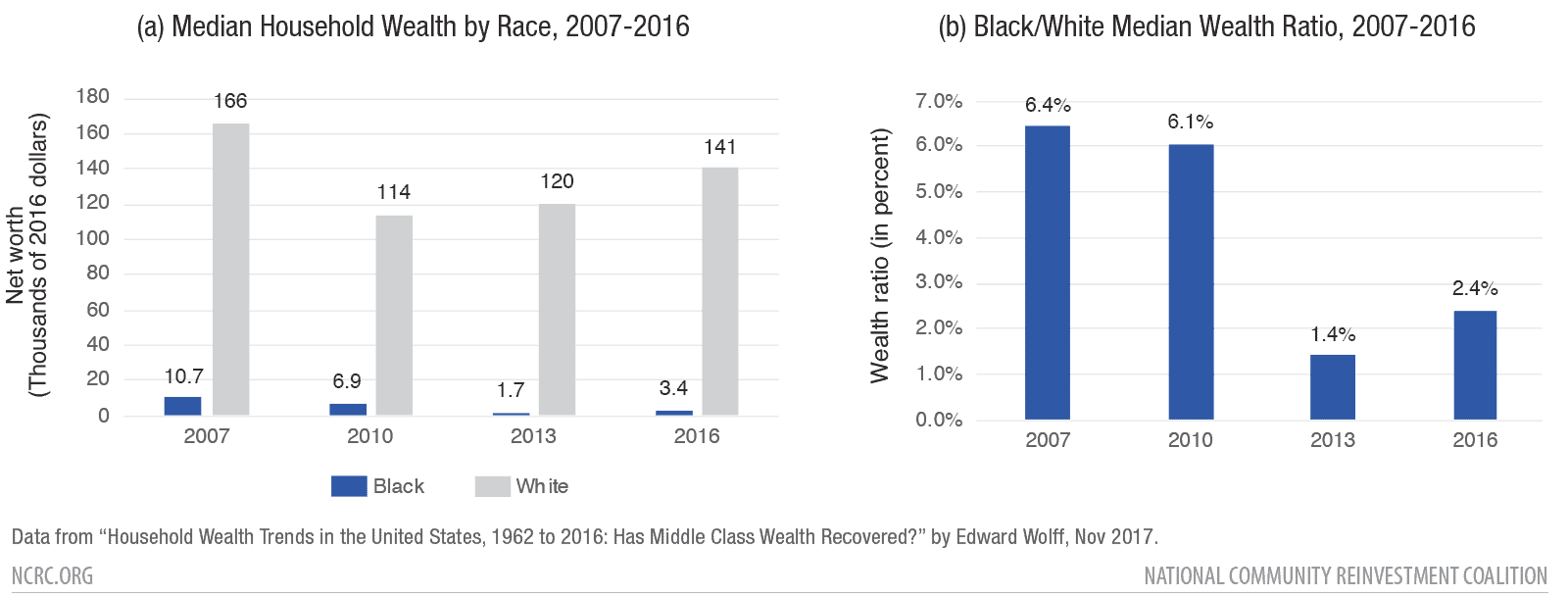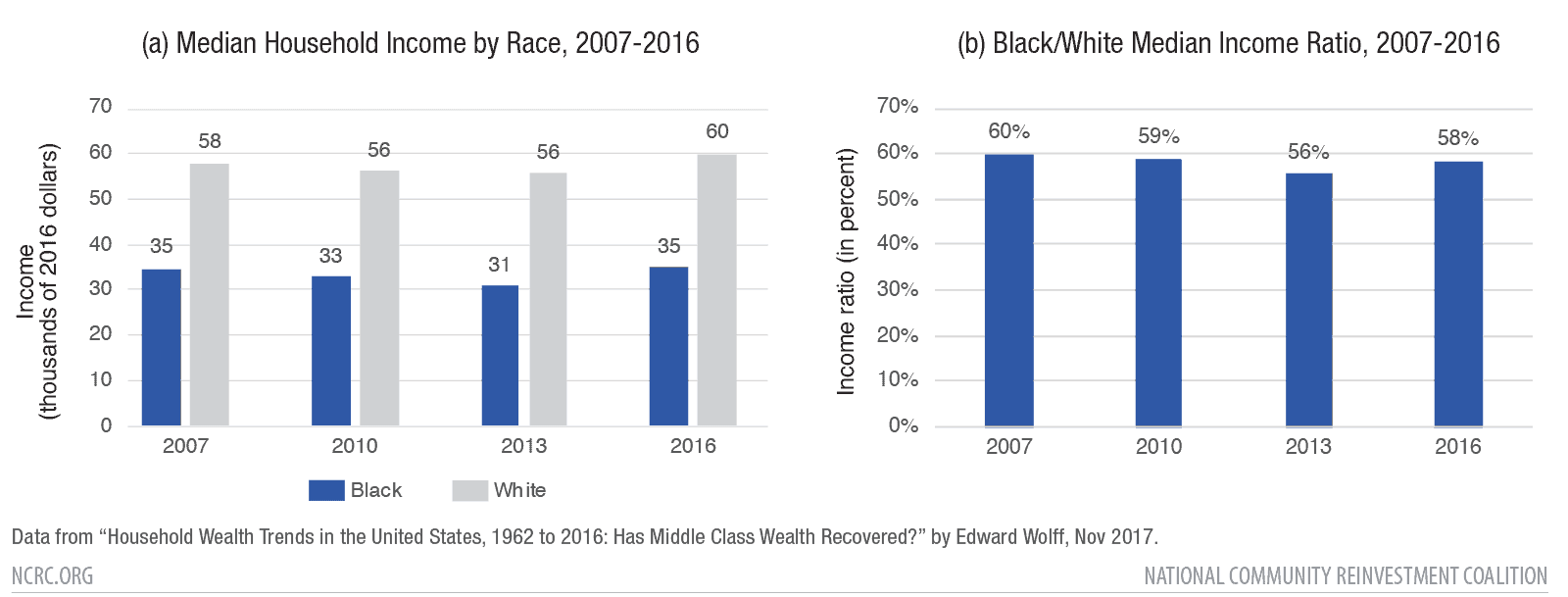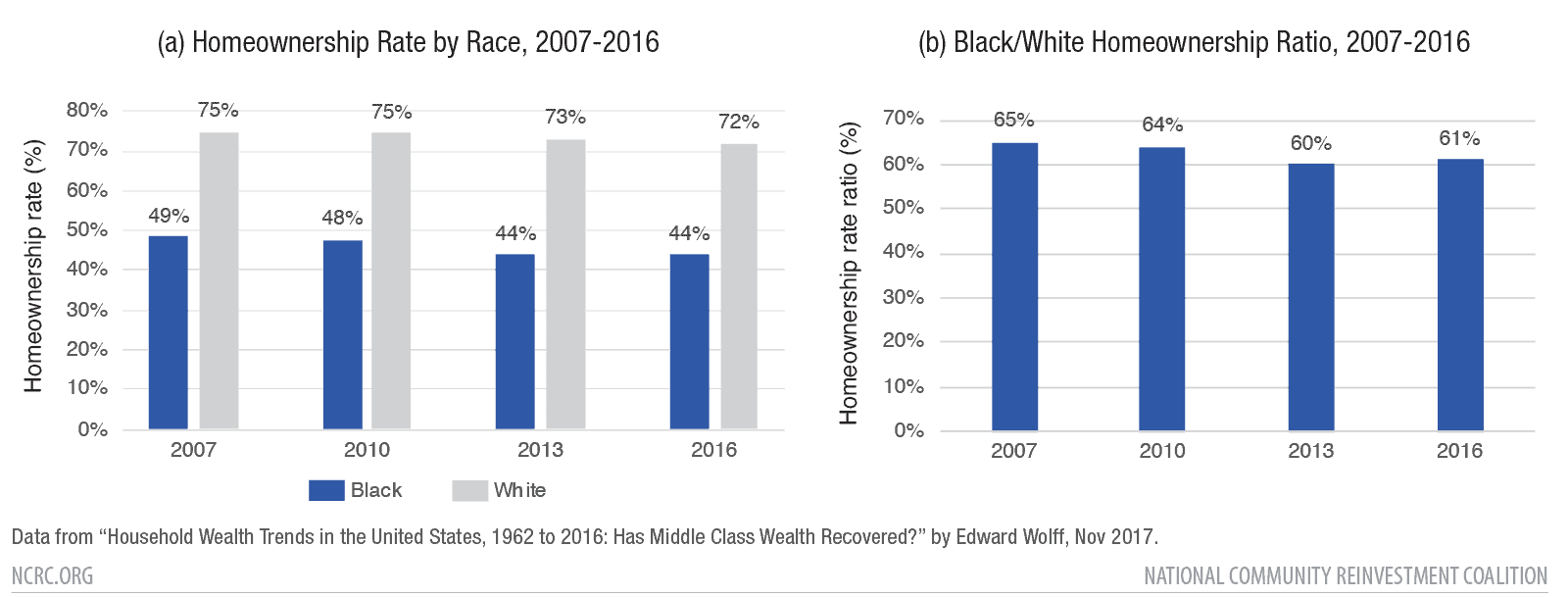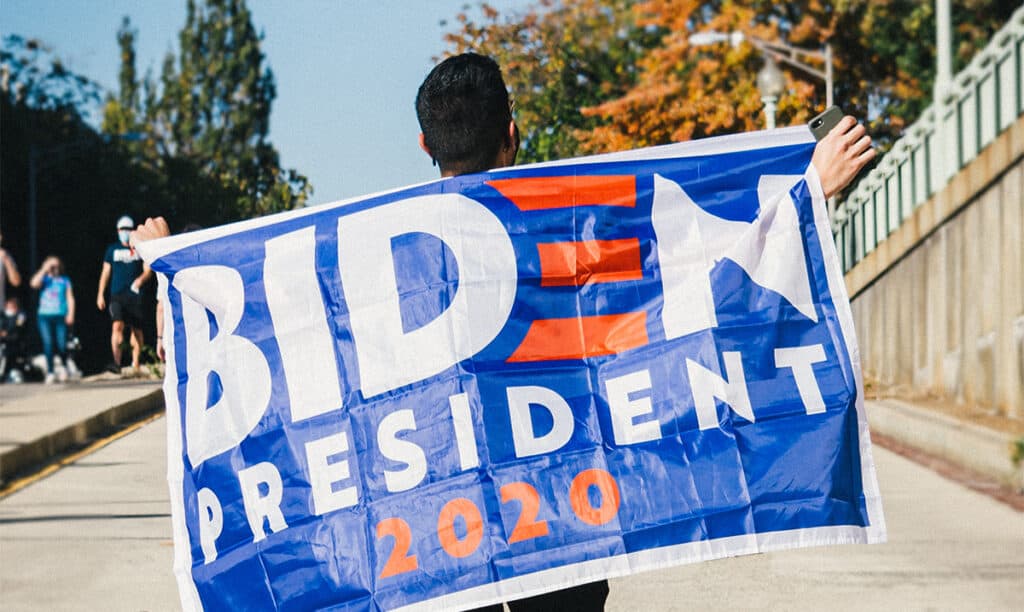Twelve years ago, the country’s first Black president’s inauguration had many Americans believe that a future free of racial discrimination and inequality was finally within grasp. President Obama promised to use the president’s power to increase opportunity for all Americans, regardless of race or class. Despite this promise, little to no progress was made in bridging Black/White inequality in wealth, income and homeownership.
Over Obama’s presidency, median Black wealth never returned to its relatively low level of $10,700 in 2007, pre-Great Recession. By 2010 (two years into Obama’s first term), Black wealth dropped 36% to $6,900. In 2013, Black wealth dropped another 75%, to a low point of $1,700, even as White wealth began to rebound, increasing by 6% or $6,500 to $120,000 (Figure 1a). From 2007 to 2016, the Black/White median wealth ratio (Black wealth as a percent of White wealth) decreased from 6.4% to 2.4% (Figure 1b). The Black/White wealth gap in the latter half of the Obama presidency was the largest in the last 30 years and comparable to the Black/White wealth gap in the 1950s and 1960s.

Meanwhile, there was also a lack of improvement in bridging racial income inequality, with Black median income decreasing from $35,000 in 2007 to a low of $31,000 in 2013 and then recovering to 2007 levels in 2016 (Figure 2a). White median income saw modest growth from 2007 to 2016 from $58,000 to $60,000, while hitting a recession low of $56,000 in 2010 and 2013. The Black/White median income ratio (Black income as a percent of White income) decreased marginally from 60% to 58% and reached a low of 56% in 2013 (Figure 2b).

During the Obama years, homeownership rates decreased for most Americans. The Black homeownership rate fell from 49% to 44%, and the White homeownership rate dropped from 75% to 72% due to the housing market crash (Figure 3a). The Black/White homeownership ratio (Black homeownership as a percent of White homeownership) moderately worsened from 65% to 61%, reflecting the disproportionate impact of the housing market crash on new Black homeowners (Figure 3b). Black homeownership is one more area that highlights a lack of progress in bridging racial economic inequality during the Obama years.

Yet, the failure to bridge racial economic inequality is not unique to the Obama presidency. Whether it was during Trump’s term, Bill Clinton’s or either Bush presidency, there has been little to no progress in bridging racial economic inequality for African Americans in wealth, homeownership and income. This lack of progress should be a wake-up call that bold action is necessary.
A bold measure we at the National Community Reinvestment Coalition recommend is for President Biden to announce a White House Office of Racial Economic Equity on his first day. This office should develop a government-wide audit to rigorously assess all significant economic policies and programs and how it affects racial economic inequality, across all federal agencies. This office should also issue a public report with actionable administrative reforms and outline legislative proposals that require Congressional authorization.
The country will be celebrating the Biden inauguration just two days after we celebrate Dr. Martin Luther King Jr.’s birthday. It was almost 60 years ago in the famous “Letter to A Birmingham Jail” that Dr. King bemoaned how moderation was the “Negro’s great stumbling block in the stride toward freedom.” In the 21st century, we have seen Black progress go from a “stride toward freedom” to being stuck in economic apartheid. Moderate reforms by Democrats have corresponded with decades of failure in addressing racial economic inequality. Biden will be the 44th out of 45 White males to take the presidency, not making history as Obama’s presidency did. Still, Biden has the opportunity to do what the Obama Administration and every other administration has failed to do over the last 40 years. Biden can take steps like a White House Office of Racial Economic Equity to turn the country away from ongoing racial economic inequality and toward greater opportunity and financial security for African Americans. It is way past due to finally Build Back Better for Black America.
Dedrick Asante-Muhammad is NCRC’s Chief of Race, Wealth and Community.
Tyler Bond was a NCRC Race, Wealth Community intern.
Photo by Gayatri Malhotra on Unsplash.



